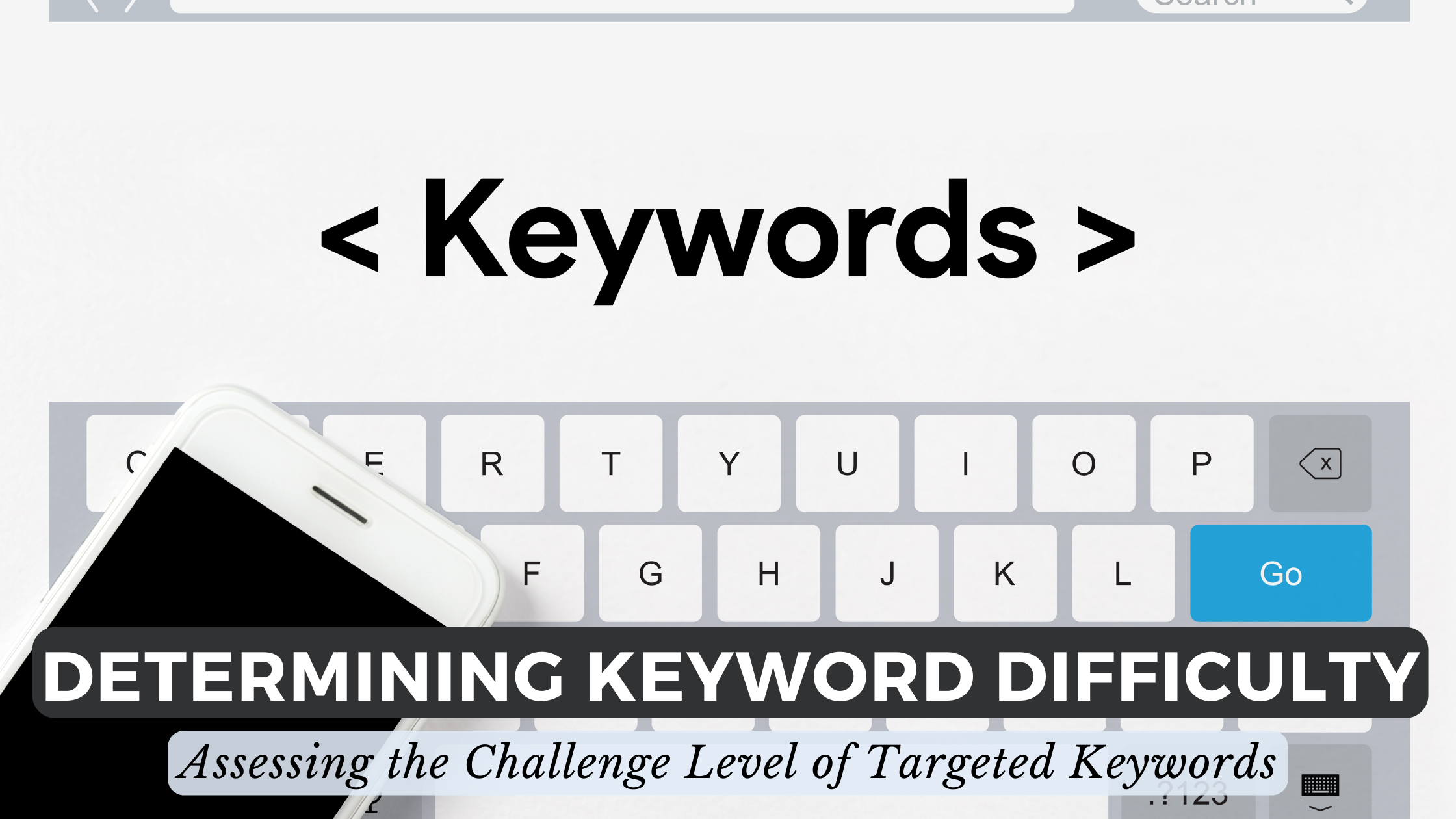Determining Keyword Difficulty: Assessing the Challenge Level of Targeted Keywords
- Conversational Marketing Software SEO Software Affiliate Marketing Software Marketing Tools


Determining Keyword Difficulty: Assessing the Challenge Level of Targeted Keywords
In the intricate landscape of SEO, understanding the difficulty level of targeted keywords is paramount for a successful strategy. This comprehensive guide aims to demystify the process of determining keyword difficulty, answering the pivotal question: How do I know my keyword difficulty? By the end of this exploration, you’ll gain insights into assessing the competitive landscape and choosing keywords that align with your SEO goals.
Grasping the Significance of Keyword Difficulty
Before delving into the methods, it’s crucial to comprehend why keyword difficulty matters. In essence, keyword difficulty gauges the competitiveness of a keyword in search engine rankings. By evaluating this metric, you can tailor your SEO efforts to focus on keywords that offer the right balance between search volume and achievable rankings.
Strategies for Assessing Keyword Difficulty
1. Utilize Keyword Research Tools:
Leverage advanced tools such as SEMrush or Ahrefs to obtain keyword difficulty scores. These tools analyze various factors, including domain authority and backlinks, to provide an accurate difficulty assessment.
2. Evaluate Competitor Rankings:
Assess the rankings of competitors for specific keywords. Tools like SpyFu allow you to spy on competitors, providing insights into the keywords they target and their ranking difficulty.
3. Analyze SERP Features:
Examine the Search Engine Results Pages (SERPs) for your targeted keywords. The presence of featured snippets, video carousels, or other rich snippets may indicate higher competition and, consequently, increased difficulty.
4. Consider Content Quality:
High-quality content is often associated with lower difficulty. Evaluate the top-ranking pages for your target keywords to understand the content quality and relevance, helping you gauge the effort required to compete.
5. Review Backlink Profiles:
Backlinks play a crucial role in SEO. Tools like Moz can assist in evaluating the backlink profiles of top-ranking pages, providing insights into the authority and competitiveness of a keyword.
Relevant SaaS Products for Keyword Research
Considering the query on keyword difficulty, here are some relevant SaaS products to streamline your keyword research and SEO efforts:
- SEMrush:
- Advanced keyword research and difficulty analysis.
- Ahrefs:
- In-depth backlink analysis and keyword difficulty metrics.
- SpyFu:
- Competitor analysis for keyword insights.
- Moz:
- Backlink analysis and content quality evaluation.
- Google Keyword Planner:
- Google’s tool for keyword research and competition analysis.
Conclusion
As we conclude this exploration of keyword difficulty, it’s essential to highlight the relevance of Subscribed.FYI. The platform offers an all-encompassing solution for freelancers, agencies, and small teams to understand, compare, and manage their SaaS stack effectively.
Visit Subscribed.FYI Deals to unlock exclusive member-only deals, resulting in substantial savings of $100,000+ per year. Seamlessly manage all your subscriptions, making informed decisions about SaaS tools in one centralized platform.
Subscribed.FYI caters to diverse professional needs, providing comprehensive insights, reviews, and pricing details for informed decision-making.
Relevant Links
Explore the official websites of the featured keyword research tools:
Unlock exclusive deals and explore more about Subscribed.FYI at Subscribed.FYI.








